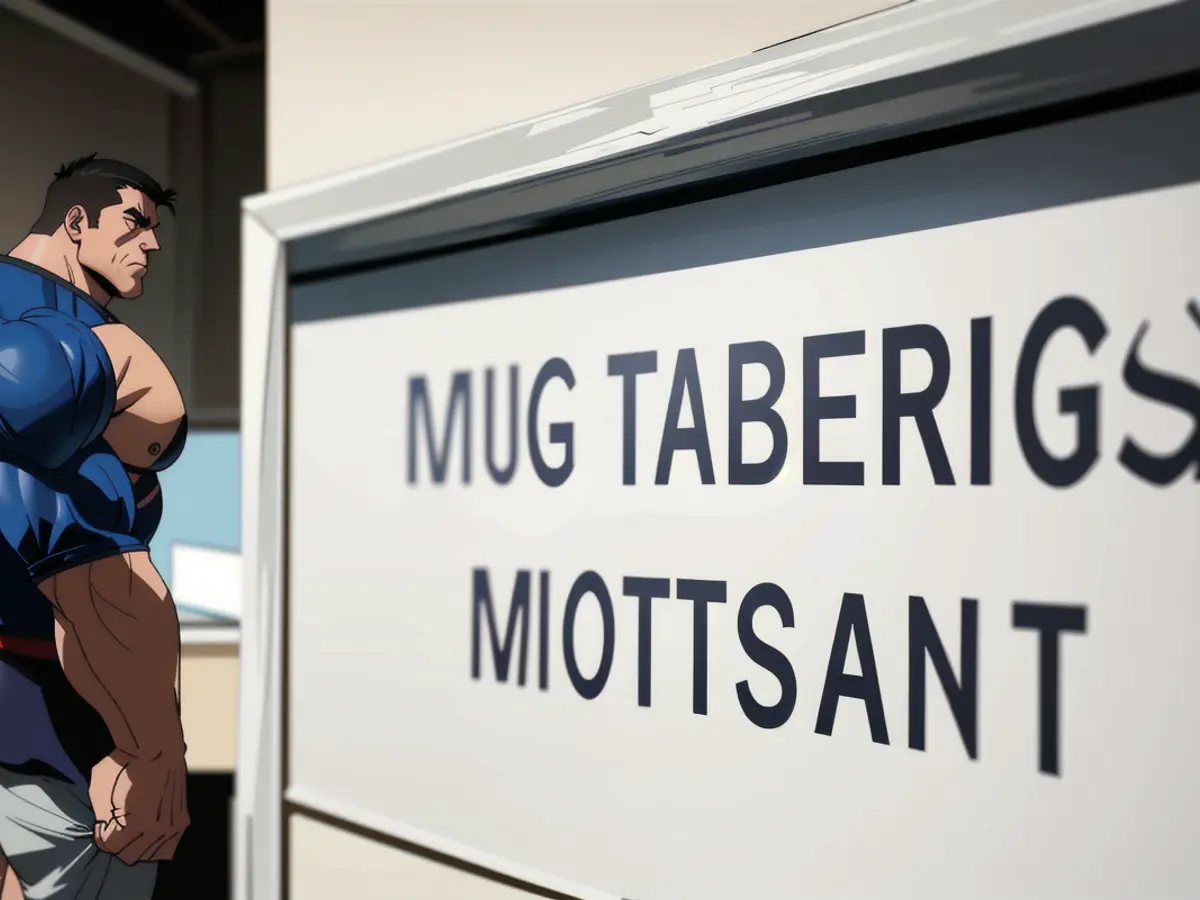Labor Court Cases on the Rise: A Consequence of Economic Struggles
Additional grievances presented to labor tribunals - Increased Cases Heard in Labour Courts
In the heart of Germany, Baden-Württemberg's labor courts are bustling more than ever. The influx of new cases has surged by a whopping 12%, reaching an staggering 37,236 cases in 2024, as per Justice Minister Marion Gentges (CDU). This significant rise in total cases is primarily due to a spike in disputes concerning employment relationships following dismissals, which shot up from 14,914 in 2023 to a mind-boggling 18,228 in 2024.
The duration of these court judgments has remained steady at 2.8 months. Gentges, in her statement to the German Press Agency in Stuttgart, commented, "The labor courts in Baden-Württemberg are demonstrating remarkable performance and efficiency, even during this period of heightened dismissal protection lawsuits." However, she also emphasized that the number of resolved cases has seen a remarkable boost of nearly 16%, reaching 36,454. Baden-Württemberg boasts nine labor courts in total.
Video Hearings on the Ascend
Video hearings have emerged as crucial tools. Equipped with video conferencing technology, the labor courts, particularly in labor court settlement negotiations, conduct up to a third of all appointments as video hearings. Video hearings serve as an effective medium for negotiations between the courts and parties.
DGB Reacts to Mounting Workplace Pressure
DGB state chairman Kai Burmeister argued that the pressure employees face in Baden-Württemberg is intensifying. "The labor court cases reveal a trend of companies resorting to dismissals based on conduct or personal reasons, aiming to slash jobs," he said. In some instances, the bypassing of the exclusionary dismissal for operational reasons is evident. On top of this, Burmeister observed an increase in attempts by companies to persuade employees to approve settlement agreements outside of courts, questioning the genuine voluntariness in such cases. Prominent companies like Bosch, ZF Friedrichshafen, Porsche, and Bertrandt have announced job cuts in the past.
Beyond Dismissals: A Closer Look
A deeper examination reveals that this rise in labor disputes isn't solely attributed to dismissals. Several factors contribute, such as:
- Data Protection Violations: Cases like the Baden-Württemberg State Labor Court verdict dismissing a works council member for data protection transgressions underscore the significance of data privacy law [1].
- Works Council Activities: Works councils play a pivotal role in mitigating the negative repercussions of automation and structural changes, which can lead to more labor disputes [2].
- Evolving Employment Laws: Changes in employment laws, like the increased focus on equal pay and working hour registration, can trigger legal challenges [1].
- Socio-economic Factors: Economic shifts, such as the reformation of the social security system and the escalation of precarious employment forms ("mini-jobs" and "midi-jobs"), exacerbate labor tensions [3].
In conclusion, the situation demands employers to prioritize compliance with the latest legal updates, like GDPR and labor laws, to tackle potential disputes. Engaging employees through favorable policies and fostering open communication with works councils may help reduce tensions. Further, offering training programs and creating an environment that fosters innovation can empower employees to adapt to technological advancements, promoting productivity in the process [2]. Lastly, advocacy groups like the DGB are actively advocating for reforms in the Works Constitution Act to amplify employee representation, which could lead to improved labor relations in the future [1].
[1] The Local, [2] Locketrellekannen, [3] tdw-consult
- In response to the growing number of labor court cases, particularly those concerning employment disputes, the German government should consider implementing additional vocational training programs focused on labor law to equip employees with the necessary knowledge to navigate complex legal landscapes.
- Due to the escalating number of workplace disputes, it is crucial for EC countries to harmonize employment laws, especially concerning data privacy, equal pay, working hour registration, and the social security system, to ensure a consistent and fair legal environment across borders.
- Since the increase in labor disputes is not solely attributed to dismissals, companies in Baden-Württemberg, such as Bosch, ZF Friedrichshafen, Porsche, and Bertrandt, should consider focusing on creating an environment that fosters innovation, employee empowerment through training programs, and open communication with works councils to reduce labor tensions and promote productivity.




